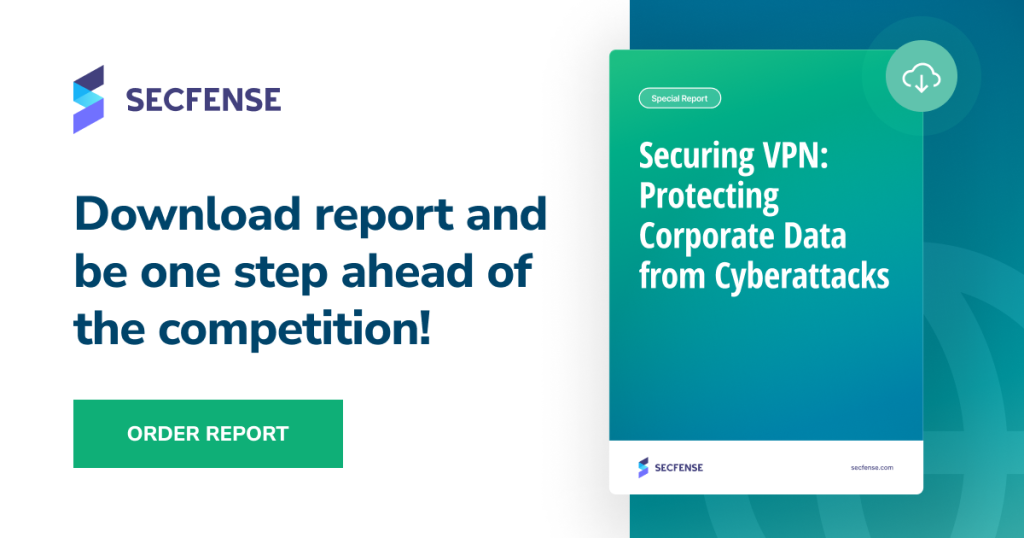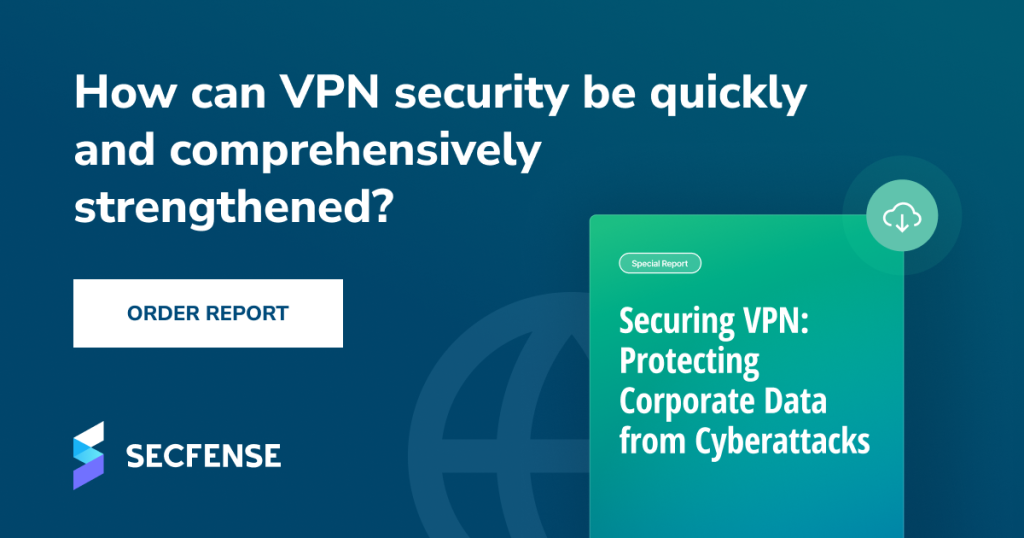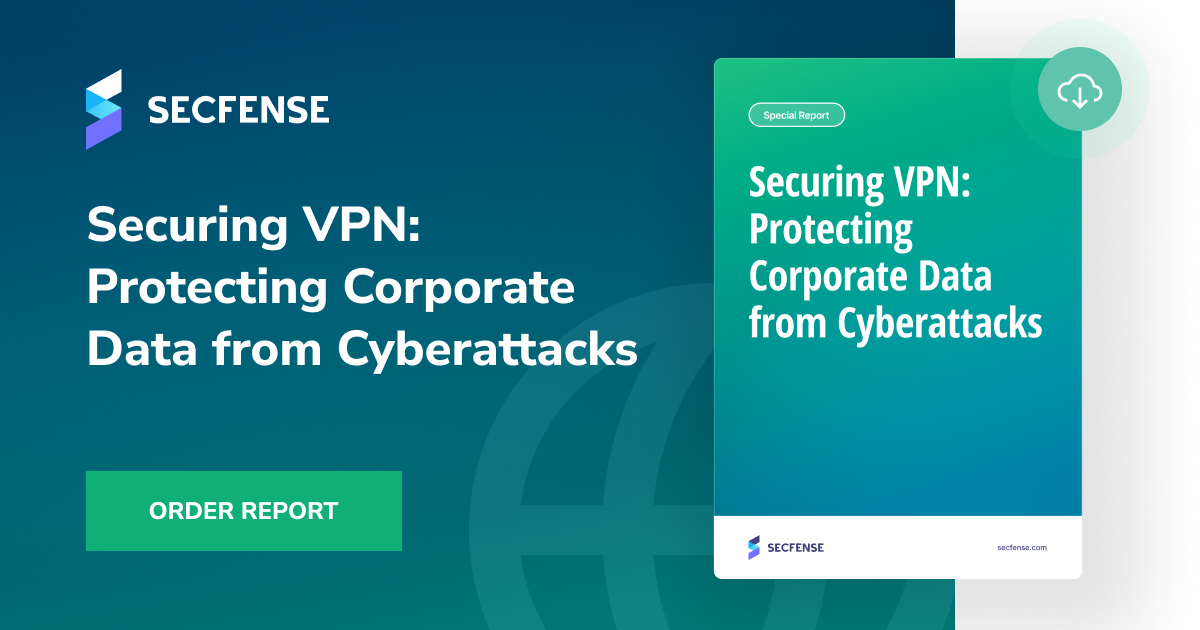VPNs have long been trusted as a secure solution for remote access to company resources. However, recent reports have revealed vulnerabilities that pose significant risks to organizational data. As companies continue to adapt to remote and hybrid work models, it is essential to understand these threats and implement robust security measures.
Our latest e-book, “Secure Your VPN: How to Protect Company Data from Cyberattacks on VPNs,” offers an in-depth analysis of VPN security. This comprehensive guide covers a range of topics to help you strengthen your VPN infrastructure.
Understanding VPNs
What is a VPN?
A Virtual Private Network (VPN) creates an encrypted tunnel between a user’s device and the VPN server, securing internet connections and enabling safe access to company resources. VPNs are crucial for companies with multiple applications and large amounts of data stored in internal data centers, as they ensure that employees can securely access these resources from any location.
Benefits for Companies
VPNs offer several advantages, including:
- Data Security: VPNs provide encrypted connections, protecting confidential data from unauthorized access and eavesdropping.
- Secure Remote Access: Employees can safely access company resources, applications, and files remotely, even from public Wi-Fi networks.
- Protection Against Attacks: VPNs add a layer of protection against various cyber threats, including man-in-the-middle attacks.
- Bypassing Geographical Restrictions: VPNs allow access to resources and services that may be geographically restricted, enhancing operational flexibility.
- Increased Work Flexibility: Employees can work from anywhere, boosting mobility and productivity.

Identifying VPN Security Problems
Common Vulnerabilities
While VPNs are designed to secure communications, they are not immune to threats. Common vulnerabilities include:
- Credential Hijacking: Attackers often target the authentication process to steal login credentials through phishing or other methods.
- DDoS Attacks: Cybercriminals may launch Distributed Denial-of-Service (DDoS) attacks to overwhelm VPN servers, causing disruptions.
- Weak Encryption Attacks: Older encryption algorithms like PPTP are susceptible to attacks, while modern algorithms like AES-256 are more secure.
- Zero-Day Vulnerabilities: VPNs can be exposed to previously unknown vulnerabilities that attackers exploit before patches are available.
- Authentication Bypass Attacks: These attacks allow intruders to bypass the authentication process and gain unauthorized access to systems.
Real-World Cases
Recent incidents involving major VPN providers highlight the importance of robust security. For example:
- Fortinet: A security vulnerability in FortiOS allowed code execution without authentication via a crafted HTTP request.
- Ivanti: Combined vulnerabilities in Ivanti’s Connect Secure VPN allowed authentication bypass and command injection attacks, compromising internal resources.
Strengthening VPN Security
Effective Solutions
To combat these threats, it is essential to implement strong authentication mechanisms. These solutions include:
- Multi-Factor Authentication (MFA): Adding a second authentication factor ensures that even if credentials are stolen, unauthorized access is prevented.
- Passwordless Methods: Eliminating passwords reduces the risk of credential theft. Modern solutions use biometric and cryptographic methods for secure access.
Secfense Solutions
Secfense offers advanced tools to enhance VPN security:
- User Access Security Broker: This solution integrates MFA, including FIDO2 standards, into any web application without extensive programming.
- Full Site Protection: Protects the VPN login page, making it invisible to unauthorized users and securing the access point.

Implementing Strong Authentication
Advanced Methods
Strong authentication involves at least two independent verification steps, which can include:
- Something the User Knows: Passwords or PINs.
- Something the User Has: Phone or security token.
- Something the User Is: Biometrics like fingerprints or facial recognition.
These methods ensure that even if one factor is compromised, the overall security remains intact.
FIDO2 Standards
The FIDO2 standard, developed by the FIDO Alliance, promotes phishing-resistant authentication. It uses biometrics and cryptographic methods to provide secure and user-friendly authentication. Secfense’s solutions are aligned with FIDO2 standards, offering advanced security for your VPN infrastructure.
Secfense Protection
Integration and Implementation
Secfense solutions are designed to integrate seamlessly with popular VPNs like NetScaler Gateway and Ivanti Secure Access. Our tools support the Security Assertion Markup Language (SAML) protocol for single sign-on (SSO), enabling secure access to multiple applications with one set of credentials.
Full Site Protection
Full Site Protection ensures that only authorized users can access the VPN server login page. Unauthorized users cannot even see the page, reducing the risk of attacks on the login interface.
Secfense IdP
Secfense Identity Provider (IdP) supports passwordless authentication, replacing traditional passwords with FIDO passkeys. This approach enhances security and user convenience. Secfense IdP also facilitates integration with various Identity and Access Management (IAM) services, ensuring flexibility in managing user identities.
Register Now
Our e-book provides a detailed exploration of these topics and more. By downloading the report, you will gain valuable insights into the latest VPN security threats and the strategies you can implement to safeguard your company’s data.
Download the full report now to explore these topics in detail and fortify your VPN against emerging threats. Protect your company’s data and ensure secure remote access for your employees.
Don’t miss out on this essential information. Sign up now to download our comprehensive e-book and take the first step towards securing your VPN infrastructure.
